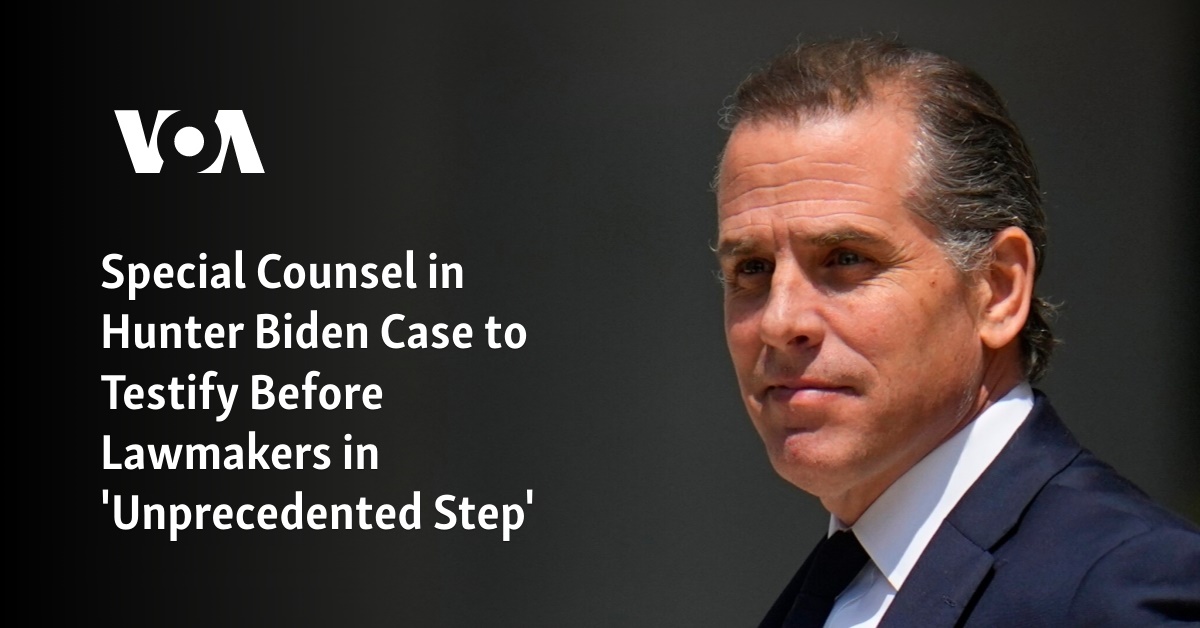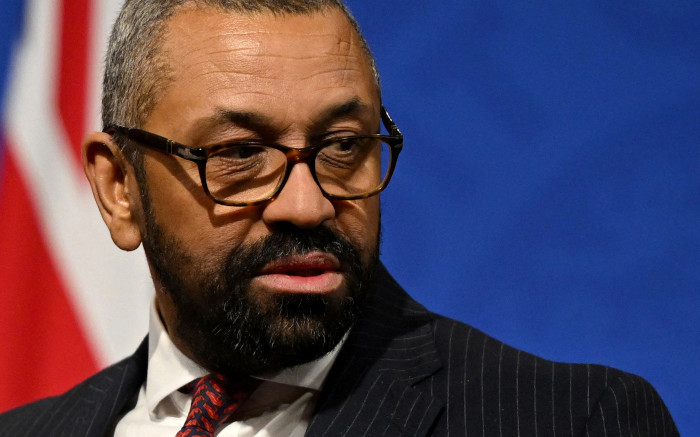
In a normal presidential election year in the United States, Primary election season helps thin out the field of Democratic and Republican candidates until only one of each remains.
But the 2024 primaries were different. Even before the first vote in the state took place, the result was clear: President Joe Biden was in the to a rematch against former President Donald Trump.
“This primary season has been particularly unusual,” said Tim Hagle, a political science professor at the University of Iowa.
“This was partly because there was little doubt about who each party's candidate would be.”
On Tuesday, the presidential primary season comes to an unobtrusive end with the decisive votes in the last four states of Montana, New Jersey, New Mexico and South Dakota, as well as the District of Columbia. Only Guam and the Virgin Islands vote later.
But experts said the most important takeaway from this year's presidential primaries was not who would ultimately win. the nomination of each partyIt was what every vote at the state level revealed about the coming election campaigns.
Trump’s “stranglehold”
The primaries began on January 15. Iowa held its traditional first caucus in the country in the race for the Republican nomination.
The field of Republican candidates was initially broad. More than a dozen hopefuls were running for the presidency, including the mayor of Miami Francis Suarez to Trump's former vice president Mike Pence.
Some political observers speculated early on that the governor of Florida Ron DeSantisa rising conservative star, could challenge Trump for the Republican nomination.
But when the Area code in Iowa As the election approached, the polls were clear: Trump maintained a seemingly insurmountable lead over all of his challengers.
For example, a Reuters-Ipsos poll conducted in December found that 61 percent of Republicans supported Trump. His nearest rivals, DeSantis and former UN Ambassador Nikki Haley, each received just 11 percent.
The result was that the Republican candidates began to cancel of the race. Shortly after the Iowa Caucus, the field shrunk even moreThis leaves only Trump and Haley in the race for the second primary in New Hampshire.
Steffen Schmidt, a political scientist at Iowa State University, concluded that Trump's reputation among Republican voters had little impact.
Trump finally found himself four charges during the primary calendar. One of these charges led to a trial that ended last month with Convictions on 34 countsin connection with a hush money payment to a porn star.
“We have learned that lawsuits, extramarital sex and 'bribes' cannot shake the support of candidates with a passionate base,” Schmidt told Al Jazeera.
Still, Schmidt added that it was “very strange” that a prominent candidate like Trump could joke about “becoming a dictator” – and face little consequences at the ballot box.
Some critics have pointed out that Haley's attempts to challenge Trump have exposed weaknesses in the former president's re-election campaign. For example, she defeated Trump in two moderate areas, District of Columbia And Vermont.
And even after suspending her campaign in March, Haley was able to continue to siphon votes from the Trump team, receiving 21 percent of the vote in the Indiana primary and more than 16 percent in the crucial swing state of Pennsylvania.
With the November presidential election likely to come down to a few swing states, the “zombie votes” for Haley’s long-defunct campaign were widely interpreted as a sign of dissatisfaction with Trump.
Yet last month, months after dropping out of the race, Haley announced that she too would vote for Trump – an indication that even the former president's Republican critics were willing to support him.
“The Republican primaries taught us that Donald Trump has a firm grip on his party,” said Richard F. Bensel, professor of government at Cornell University.
“There is no one in the party who can effectively stand up to him, and even his strongest opponents, like Nikki Haley, have ultimately capitulated because they pursued their own individual ambitions.”

Biden “difficult to replace”
On the Democratic side, the protest electorate was even more strongly represented.
Biden, the incumbent president, faced backlash within his own party over issues such as Israel's war in the Gaza Strip And immigration. The Gaza Warparticularly promoted the emergence of a protest movement around the primaries.
Starting with the February primary in Michigan, organizers urged Democratic voters to Select options such as the category “uncommit” on their ballots instead of supporting Biden.
In Michigan “unbound” movement received nearly 101,000 votes and two party delegates out of a total of 117. In another important state where the race is neck and neck, WisconsinIn the Democratic primary, more than 47,800 voters cast their ballots in the “uninformed” category.
As in the Trump case, critics warned that even small losses in support could have serious consequences for the general elections in November.
However, the protest vote had relatively little influence on the outcome of the primaries themselves.
Biden was considered a safe candidate: never before has an incumbent lost in the modern primary system, and only once in U.S. history has an elected incumbent failed to receive his party's endorsement.
“The Democratic primaries have shown once again that it is very difficult to replace an incumbent president, even when he is very unpopular,” Bensel, a professor at Cornell University, told Al Jazeera.
Bensel added: “In a sense, the Democratic Party is walking the plank of a sinking ship.”
A Reuters and Ipsos poll conducted in May found that only 36 percent of Americans were satisfied with Biden's job performance.
Still, experts said there is no strong Democratic candidate who can challenge the president in his bid for a second term.
Even before the primaries had begun, former environmental activist and conspiracy theorist Robert F. Kennedy Jr. withdrew from the Democratic race and ran instead as an independent.
This left little-known competitors such as the self-help author Marianne Williamson and Representative Dean Phillips will run against Biden in the primaries.
“It was surprising that no Democrat who would be considered a serious candidate was willing to challenge Biden,” said Hagle, a professor at the University of Iowa. “Perhaps it didn't seem so clear to Democrats that they would lose the 2024 general election because they believe they can beat Trump.”

The consequences of “two unpopular, ageing politicians”
Polls show Biden and Trump neck and neck in the November election. Both secured the required number of delegates in the primary to run as their party's nominee.
According to the latest Reuters-Ipsos poll, the two candidates would be “statistically tied if the presidential election were held today.” Biden has 41 percent support, just ahead of Trump at 39 percent.
Ken Kollman, a professor of political science at the University of Michigan, said the primaries showed that the two candidates would stay despite some discontent in the country.
“While many would have hoped otherwise, voters have learned that these two unpopular, aging politicians are not going away and that they face a confrontation with enormous consequences in November,” Kollman told Al Jazeera.
“Both have clung stubbornly to their leadership positions in their respective parties, and neither has failed to notice the divisions and lack of enthusiasm among a section of the electorate within their parties.”
Dennis J. Goldford, professor of political science at Drake University, agreed.
He told Al Jazeera that both Democrats and Republicans emerged from the primaries “with a candidate who does not excite the majority of either party.”
He stressed, however, that the primary election's predictive power for the general election is limited. The number of voters who cast their ballots in primaries and caucuses can be comparatively small.
“Americans talk a lot about voting rights, but we don't really mean it. At the national level, voter turnout in presidential elections is maybe 60 percent, in midterm elections 40 percent, and in primaries 20 percent,” Goldford said.
He added that many voting trends in the presidential campaign have remained consistent so far.
“Republicans take voting more seriously than Democrats; older people take voting more seriously than younger people; and partisans take voting more seriously than independents,” Goldford explained.
He added, however, that there could be shifts in the traditional voting blocs. “The interesting question is whether the alleged movement The hostility of the traditional Democratic electorate – blacks and Latinos – towards Trump is real.”
Ultimately, many of the experts who spoke to Al Jazeera said the unusual primary season was a symptom of an overall unusual presidential campaign.
Never before has a former U.S. president been impeached – and certainly not during an election cycle. And the last time a presidential election was a rerun of the previous race was in 1956.
For Schmidt, election forecasts work like weather forecasts: “Predictions depend on continuity and a certain repetition of the past.”
But this year? “We have none of that.”






Recent Comments